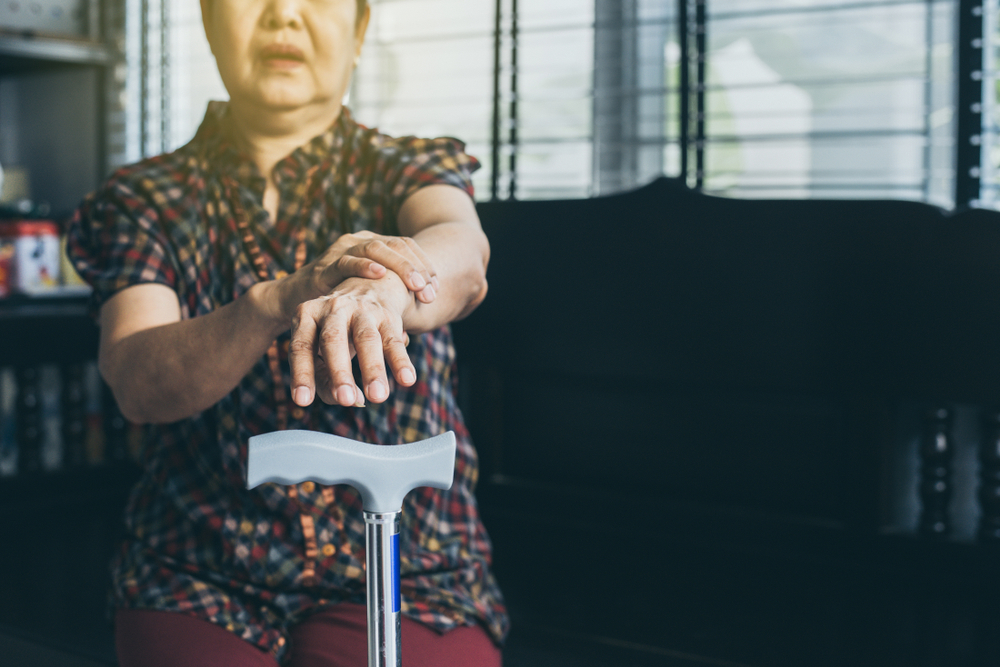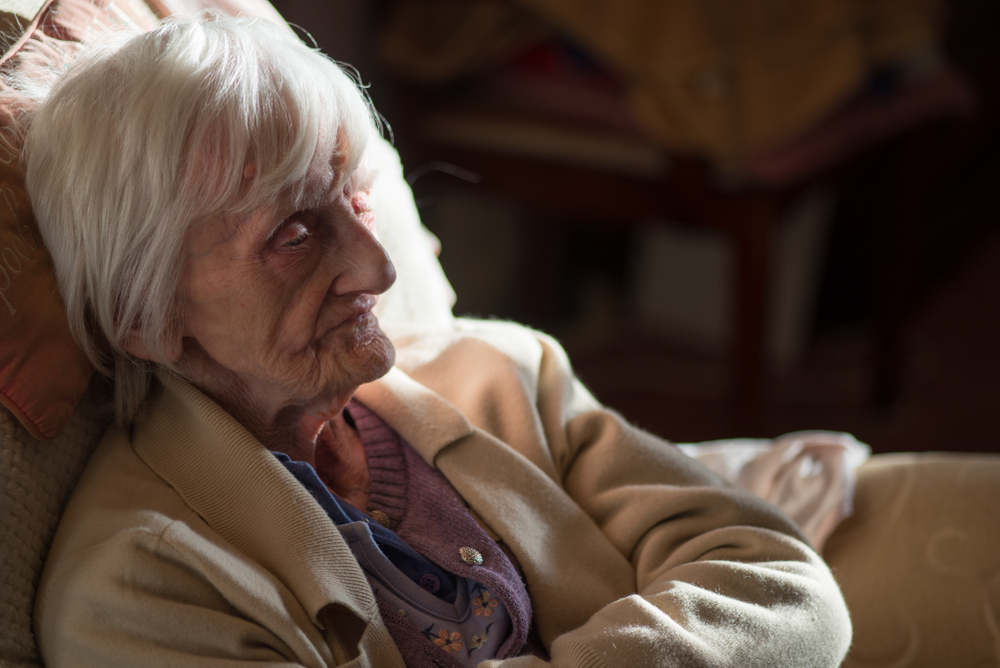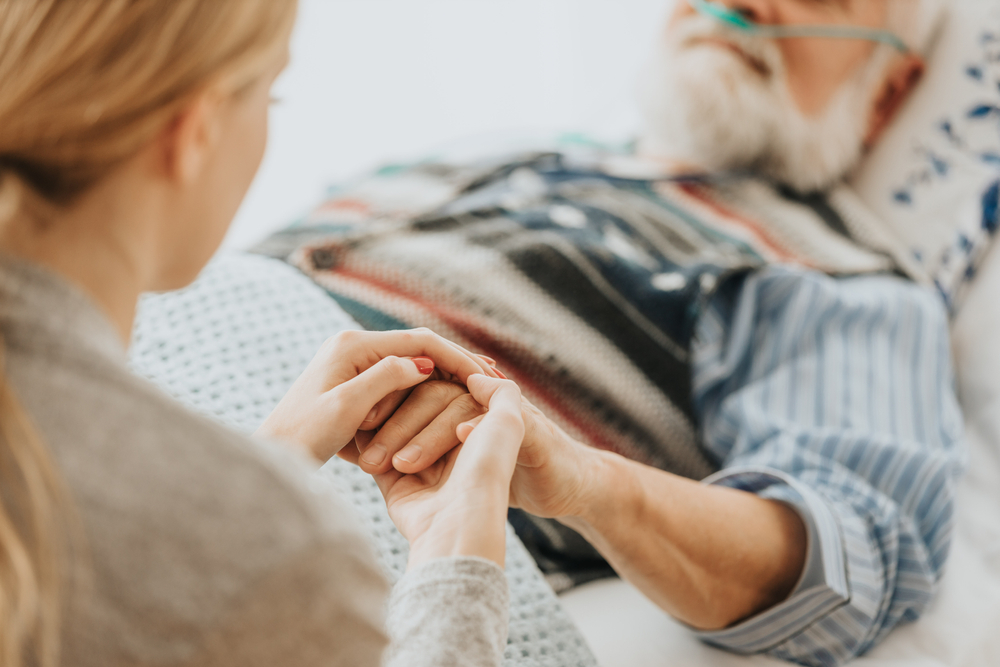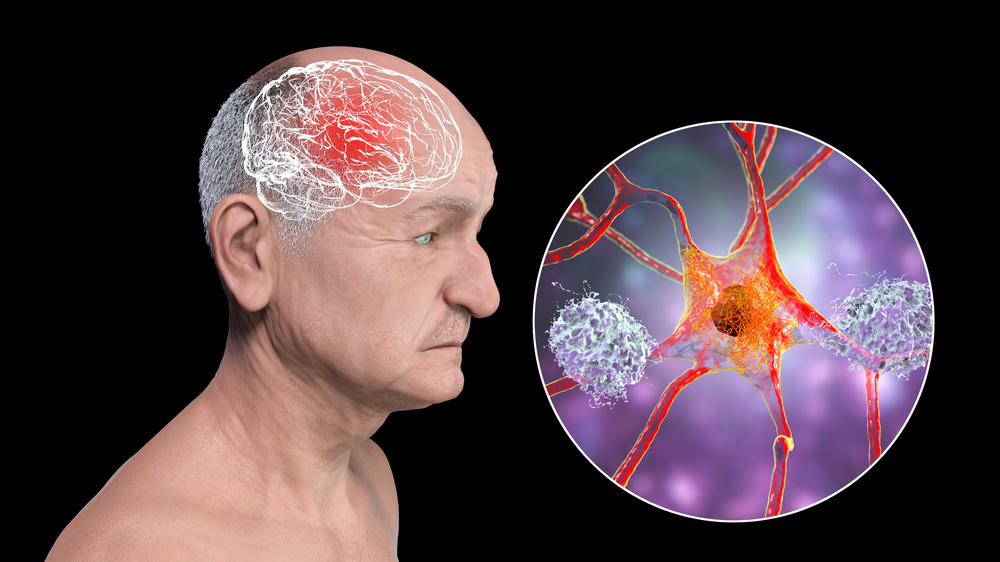Single mother, 48, diagnosed with Early-Onset Alzheimer’s disease reveals first symptoms she noticed

We live in a world that tells us to move fast. Hustle harder. Push through. We wear our busyness like a badge of honor—until something deeper begins to slip. Not deadlines. Not meetings. But memory. Identity. Self.
Rebecca Luna was living that high-speed life—a single mother, working hard, keeping pace, carrying the weight of her world on her shoulders. And then, at just 48 years old, life hit pause. Not because she wanted to slow down, but because her mind began to unravel in ways she couldn’t ignore. What started as a moment of confusion at her computer spiraled into a devastating diagnosis: Early-Onset Alzheimer’s.
This isn’t the version of Alzheimer’s most people talk about. It’s not grey hair and retirement homes. It’s young parents. Working professionals. People in the middle of building their lives—watching their future fade, one forgotten moment at a time.

Recognizing the Subtle Alarms — When Forgetfulness Isn’t Just Stress
Imagine waking up one morning and going through the motions of a typical workday—coffee brewed, laptop open, the familiar rhythm of emails and tasks awaiting. But suddenly, there’s a strange silence in your mind. The to-do list you’ve mastered for years is gone. The confidence, the automatic memory of where to begin, has vanished. That’s what happened to Rebecca Luna, a 48-year-old single mother whose life took a dramatic turn when she was diagnosed with Early-Onset Alzheimer’s. At the time, she had been living a full and fast-paced life, managing work and motherhood like so many others do—until the day she opened her computer and stared at the screen in complete confusion. “I didn’t know what to do,” she said, describing a moment that would shake anyone to the core. “There was just… nothingness.”
For many people, forgetting a task or losing focus might seem normal, especially in the whirlwind of modern life. We often attribute these lapses to stress, burnout, lack of sleep, or emotional overload. And Rebecca did the same at first. She dismissed the increasing forgetfulness as something temporary, something manageable. But Alzheimer’s doesn’t knock loudly at the door—it creeps in quietly, disguised as fatigue or distraction. According to the Alzheimer’s Association, Early-Onset Alzheimer’s, which affects people younger than 65, often presents with subtle but persistent symptoms: difficulty focusing, forgetfulness that interferes with work or relationships, and trouble completing familiar tasks. These signs are frequently overlooked, especially in younger individuals who are assumed to be “too young” for such a diagnosis. That assumption delays recognition and robs people of early interventions that could help them navigate the journey with more preparation and support.
For Rebecca, the turning point came when the forgetfulness became dangerous. In one chilling episode, she had set an egg to boil on the stove and then completely forgot it—leaving the house entirely. She walked all the way downtown, a full thirty-minute trip, only to realize what she had done. When she rushed back home, her house was engulfed in smoke. It was a moment that forced her to confront the severity of what was happening. This wasn’t just about losing her train of thought or spacing out during a conversation—this was about safety, survival, and a mind that could no longer be trusted to protect her or her children from harm.
Rebecca’s experience underscores a deeper, more unsettling truth: many of us don’t know when to worry. We write off mental slips as minor, failing to recognize the difference between normal forgetfulness and the early signs of neurodegenerative disease. That confusion is understandable. Life is busy. Minds are overloaded. But Rebecca’s story asks us to slow down and pay attention—to notice the moments when confusion becomes incapacitating, when tasks feel foreign, or when memory lapses turn from occasional to constant. These are not just personal struggles; they are signals, alarms sounding from deep within.
What makes Rebecca’s story especially powerful is not just the medical diagnosis, but the emotional clarity with which she shares it. She isn’t just fighting a disease—she’s navigating a profound shift in identity, responsibility, and future. Her candid reflections challenge us to reflect on our own mental wellness and to advocate for those around us. Because sometimes, what looks like forgetfulness is really a silent scream for help. And the sooner we listen, the more compassionate—and prepared—we can be.

The Emotional Earthquake — Coming to Terms with an Unthinkable Diagnosis
There are moments in life that hit like an earthquake—unexpected, disorienting, and life-altering. For Rebecca Luna, receiving a diagnosis of Early-Onset Alzheimer’s at just 48 years old was one of those moments. It wasn’t just a medical label—it was a sentence that fractured the foundation of everything she thought she knew about her future. A single mother of two, Rebecca had spent years building a life grounded in purpose and momentum. Then suddenly, she was forced to confront a reality most of us only associate with old age: the slow, inevitable loss of memory, independence, and control.
Alzheimer’s, by its very nature, is progressive and terminal. But Early-Onset Alzheimer’s carries an added weight—it disrupts people in their prime. Many are still raising families, working full-time jobs, contributing actively to their communities. The disease doesn’t just strip away memory; it robs people of roles they still deeply identify with. Rebecca knew exactly what this diagnosis meant. On her GoFundMe page, she wrote with heartbreaking honesty: “This disease is terminal and progressive with a shorter (8 years) life expectancy… I will eventually lose the ability to work, live independently and support myself financially.” Those aren’t just facts—they are the painful realities of a future slowly being taken away, piece by piece.
Coming to terms with a diagnosis like this isn’t a single moment—it’s a process, a continual reckoning. There’s the fear of what’s to come: forgetting your children’s names, getting lost in your own neighborhood, becoming a stranger in your own skin. But there’s also the guilt—especially as a parent. For Rebecca, the emotional burden wasn’t just about her own decline, but about what it would mean for her children. How do you prepare them for the day you might not recognize their faces? How do you explain that the strong, stable parent they’ve always known is slowly fading away?
Yet amid the grief, there’s also something remarkable about Rebecca’s response: resilience. She’s chosen to document her experience openly, sharing her struggles on platforms like TikTok—not for sympathy, but for solidarity. In doing so, she’s giving voice to others walking a similar path, many of whom are too overwhelmed or ashamed to speak up. Her courage in facing the unknown—publicly and vulnerably—is a powerful reminder that emotional strength isn’t about pretending things are okay; it’s about showing up, even when they aren’t.

The Cost of Decline — When Illness Becomes a Financial Burden
A diagnosis like Early-Onset Alzheimer’s doesn’t just affect the mind—it impacts every corner of a person’s life, including something many don’t think about until it’s too late: financial security. For Rebecca Luna, the slow unraveling of memory and cognition is compounded by the looming question of how she will survive—not just emotionally or physically, but economically. As a single mother, she is the primary provider for her household. But with a disease that is guaranteed to progress, she knows that her ability to work, earn income, and manage basic life expenses will fade, even before her memory fully does.
Rebecca’s GoFundMe campaign offers a sobering glimpse into the economic side of chronic illness. She writes candidly about needing support not just for herself, but for her children—support to cover medications, therapies, housing, and eventually full-time care. These aren’t optional luxuries. They are life-sustaining needs. Alzheimer’s care, particularly for those diagnosed under age 65, is notoriously expensive and often inadequately covered by insurance. According to the Alzheimer’s Association, individuals with Early-Onset Alzheimer’s can face out-of-pocket costs ranging from tens to hundreds of thousands of dollars over the course of their illness. Many lose their jobs early in the progression, long before benefits like disability or long-term care insurance can fully kick in. And because they’re diagnosed young, they often don’t qualify for certain Medicare or Social Security supports typically reserved for seniors.
This financial pressure isn’t just a logistical challenge—it’s an emotional weight that deepens the psychological toll of the disease. Rebecca knows what’s coming: she will, at some point, need help remembering to eat, to shower, to stay safe. She may need 24-hour supervision, memory care, or even a nursing facility. None of that is free. And for many Americans—especially single parents like Rebecca—there’s no safety net large enough to catch them. When illness strikes in midlife, it doesn’t just dismantle plans; it dismantles paychecks, retirement dreams, and the sense of stability that so many have worked hard to build.
What makes Rebecca’s situation even more painful is that she’s not alone. Countless families face similar financial devastation when chronic illness enters the picture—especially with conditions like Alzheimer’s that drag on for years. The system isn’t built to support people who lose their minds before they lose their strength. There are few resources, fewer policies, and even fewer conversations happening around how we help working adults manage life after a diagnosis that changes everything.

Breaking the Silence — Why We Must Talk About Early-Onset Alzheimer’s
Alzheimer’s has long been framed as an “elderly person’s disease,” a condition reserved for the later chapters of life. It’s often depicted in films and public conversations as something that begins after retirement, when the demands of work and raising a family are behind us. But Rebecca Luna’s story—and the stories of thousands of others like her—shatters that illusion. Diagnosed at 48, she is part of a growing population of people facing Alzheimer’s far earlier than most expect. And yet, despite this reality, conversations around Early-Onset Alzheimer’s remain disturbingly scarce.
One of the most harmful effects of this silence is the stigma that follows. Because Alzheimer’s is so strongly associated with aging, younger people who experience cognitive decline often feel isolated, misdiagnosed, or dismissed. When Rebecca first began to struggle with forgetfulness and confusion, she blamed stress—as do many others. And why wouldn’t she? Society rarely talks about cognitive disease in the context of someone under 50. Even medical professionals can miss or misinterpret the signs, attributing symptoms to depression, burnout, or anxiety before ever considering Alzheimer’s. This leads to delayed diagnoses, missed treatments, and an overwhelming sense of invisibility for those who are suffering.
By speaking openly about her experience on social media and fundraising platforms, Rebecca is doing more than sharing her story—she’s challenging the cultural narrative around what Alzheimer’s looks like. And that matters. Visibility creates understanding. When more people see that this disease does not discriminate by age, they’re more likely to recognize the signs in themselves or their loved ones, and to seek support earlier. In fact, early diagnosis—while emotionally difficult—can be life-changing. It gives individuals and families time to plan, to access treatments that may slow progression, and to build support networks before the disease fully takes hold.

A Call to Awareness — Turning Compassion Into Action
Rebecca Luna’s journey is not just a personal story—it’s a mirror. It reflects back to us the uncomfortable truths we often choose not to see: that illness can strike at any age, that our systems are not built to catch everyone who falls, and that resilience alone is not enough to carry someone through a life-altering diagnosis. But her story also gives us something more powerful than grief—it gives us an invitation. An invitation to care more deeply, to listen more closely, and to act more consciously.
When someone like Rebecca speaks out—about her memory loss, her financial fears, her hopes for her children—she is not just documenting her decline. She is reminding us that diseases like Alzheimer’s are not abstract or far-off. They are here. They are real. They are affecting people in the middle of raising kids, paying bills, and contributing to the world. And they are doing it quietly—because most people don’t know how to talk about them, or even recognize them. The first step we can take, then, is awareness. Knowing that Early-Onset Alzheimer’s exists. Knowing what it looks like. Knowing that it’s not rare, and certainly not invisible.
But awareness alone is not enough. Compassion has to become action. That means supporting people like Rebecca—not only emotionally, but materially. Sharing their stories. Donating when possible. Voting for policies that expand healthcare access, disability rights, and caregiver support. Encouraging workplaces to understand and accommodate neurodiversity and cognitive illness. These changes might seem small, but together they can build a world where no one has to walk through this journey alone, confused, or unsupported.
And for those reading this who may see a glimpse of their own lives in Rebecca’s—whether it’s a forgotten appointment, a strange moment of mental blankness, or a persistent worry you’ve pushed aside—this is your sign to pay attention. Seek help. Ask questions. Advocate for yourself. Memory is precious, and noticing its cracks early can make all the difference in how the next chapters unfold.
Loading...

